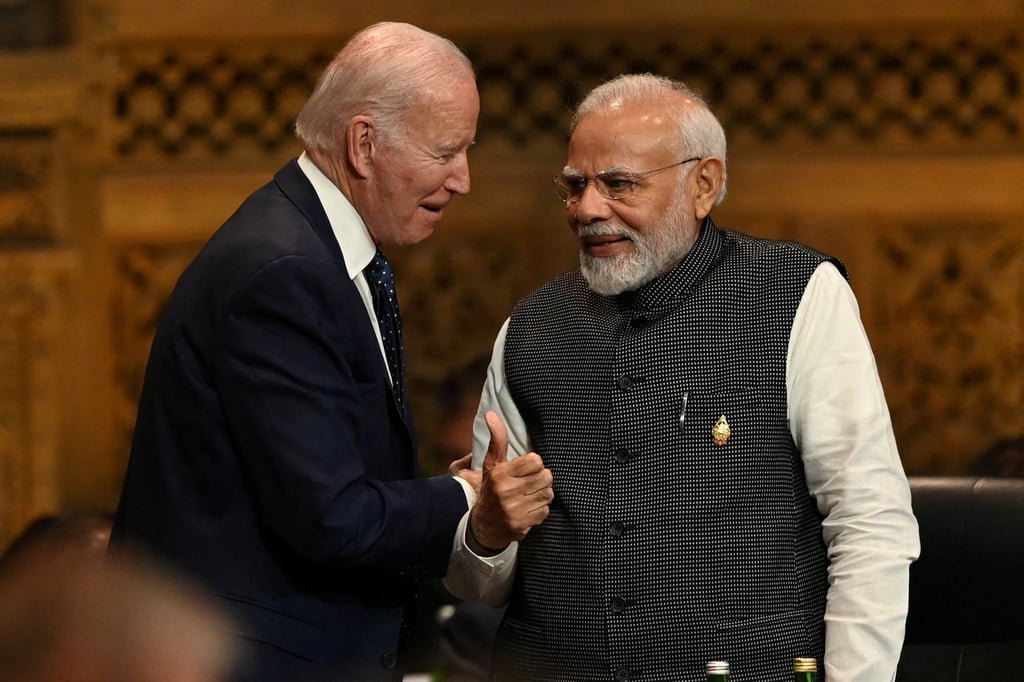Tech war: US-India tech deal could speed up global supply chain realignment, hurting China
- A new US-India pact on development in semiconductors, artificial intelligence and telecommunications has touched a nerve in Beijing
- While India has emerged as a beneficiary of a global supply chain realignment, bureaucracies could limit the efficacy of its deal with Washington

Details of the US-India Initiative on Critical and Emerging Technologies (iCET), published last Tuesday, also include planned cooperation in quantum computing and defence.
While China is not mentioned in the document, the agreement between Washington and New Delhi is seen as part of US efforts to limit the role of the world’s second-largest economy in global supply chains.
The collaboration has touched a nerve in Beijing, where officials have shown growing concerns over a push by the US towards economic and technological decoupling with China.
Since last week, the People’s Daily has published three opinion pieces written by Zhong Sheng, a pen name representing the official position of the Chinese Communist Party’s mouthpiece, accusing the US of exerting its influence over allies to create cliques to hinder China’s development. The articles did not directly mention India.

